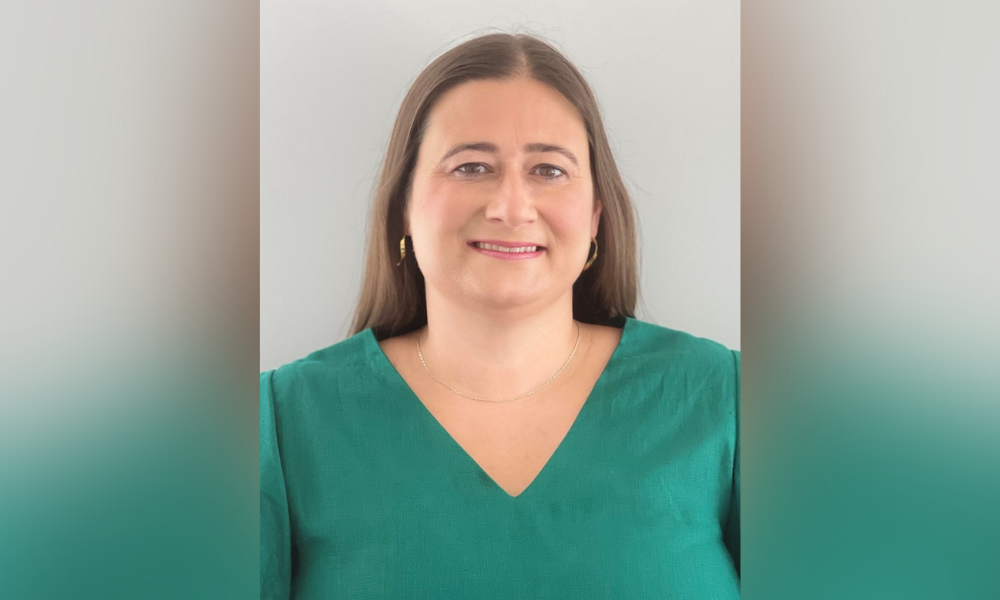
Joanna Beresford believes that junior lawyers must be trained in clear concise analysis and drafting

Joanna Beresford grew up fascinated by the sciences, and by specialising in environmental law, she found a perfect way to combine science and law. For her, one of the best things about being a lawyer is getting to work experts in different disciplines of science and engineering.
Beresford has since gone on to co-found litigation specialist firm Beresford Law with husband Geoffrey, an endeavour that has been shaped by the COVID-19 pandemic. While Beresford embraces the influx of tech into the legal profession, she goes back to the basics of what the law is about – providing a service to those navigating difficult legal environments.
In this interview, Beresford talks about the importance of concise analysis in legal and policy documents, being authentic as a lawyer and how she’d love to see Leonardo da Vinci’s reactions to the modern world.
What made you choose a career in law, and what's your favourite part of the job?
I enjoyed English, History and debating at school but also had a keen interest in the sciences. At university, I studied geology as well as law, and I weighed being an environmental scientist or a lawyer. I realised that I could combine science and law to some extent by becoming an environmental lawyer.
I really enjoy the advocacy aspect of legal work and practicing resource management law has meant that I have had a lot of opportunities to advocate for my clients in various forums. Perhaps unsurprisingly given my interest in science, one of my favourite parts of the job is working with multi-disciplinary project teams made up of expert witnesses in various science and engineering disciplines. These experts have amazing knowledge – they challenge my understanding of the world around me, and I always enjoy learning something new from them.
What is going on at the firm? Are there any new programs and initiatives that you’re particularly interested in?
Beresford Law is a brand-new firm having officially launched in mid-March. Right now, we are squarely in the start-up phase. Our focus is on building a stable platform for growth.
What tech-related initiatives adopted by the firm, if any, are you most excited about?
Beresford Law is definitely a 2022 firm! We officially launched at (what appears to be) the peak of New Zealand’s Omicron outbreak and a lot of our business and tech decisions have been driven by our learnings from how to cope with the disruptions of the pandemic over the past two years.
The usual approach for law firms is for the physical office to be the hub of the business and then remote working capability has been grafted on to that. We have taken the opposite approach. Our software is cloud based, and we have deferred our search for office premises until later in the year to allow us to focus on setting up in a flexible way where we can work from anywhere right from the outset.
What has been your proudest accomplishment in the last year or so? What advice can you give fellow lawyers about it?
Starting Beresford Law. My best advice to fellow lawyers is to be honest with yourself about what you want from your career and do what feels right and authentic for you. Once you know what you want, make a plan for how you will achieve it and start taking small steps to make it a reality.
What should the profession and law firms focus more on?
The law! As a profession, it is important that we do not forget that our key role is providing a service to the public to help people and businesses navigate complex legal environments.
What are the challenges you expect in your practice, and in the business of law in general, going forward? What challenges are particularly pressing in the country’s legal industry?
One of my particular concerns (that anyone who has worked with me will have heard a bit about!) is the adverse effect of “cut and paste” on the legal and resource management industries. The ability to quickly copy lengthy tracts of text means that legal and policy documents quickly become very lengthy and what is often then missing is concise, clear analysis of the problems and solutions. As a profession I think that we need to focus on training our junior lawyers in the skill of clear concise analysis and drafting.
What are you looking forward to the most in the coming year?
Getting stuck in and helping people!
If you were given an opportunity to spend a day with anyone (living or dead), who would it be and why?
Leonardo da Vinci. I’ve always marvelled at how his scientific and engineering thinking was so ahead of his time. Imagine being able to see his reactions to technology (such as aeroplanes, armoured vehicles and solar power arrays) that exists now that he designed pre-cursors of but could not be physically built at the time.